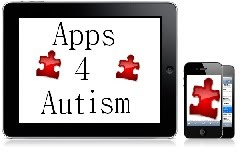SILVER SPRING, Md., April 25, 2011 — It's 8:45 p.m. and my son Jack and his little brother are supposed to be asleep in the bedroom they share, stacked in bunk beds one atop the other. They, however, are wide awake and chatting with each other.
The mom in me thinks I should march in there, separate them and threaten them to within an inch of their lives if they don't fall asleep right this very minute!
The autism mom in me, however, is delighted. I can't tell what they're chatting about—if I had to guess, I would wager that it is a conversation about a complicated video game mission that the two of them are creating in their minds—but I don't really care.
They're talking. One speaks, then the other follows up with a related sentence, and it continues for as long as I listen. It's not really that big of a deal, unless learning how to hold a conversation is not something that comes naturally to your child.
This is the advantage I have in parenting a child with autism who has both an older and a younger brother. Social skills never stops at my house.There have been many times when my family is out and about somewhere, and my three kids are running around like the little chaos machines that they are, and I think, "Wow, this would be so much easier with fewer children." But then I stop and think, "No, really having three kids makes life so much easier." And that's not just because they play with each other instead of hassling me to play Candy Land.
My parenting goal when it comes to my children is that I want to make them a unit. I want them to be able to count on each other and be each others' best friends. I want their brotherhood to be one of their strongest, life-long bonds.




.jpeg)

.png)












































 ShareThis
ShareThis
No comments:
Post a Comment